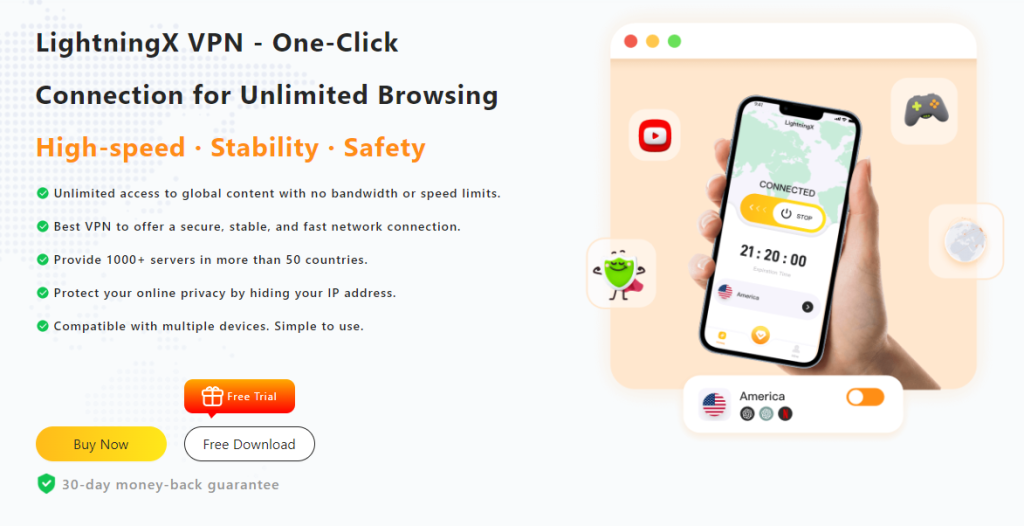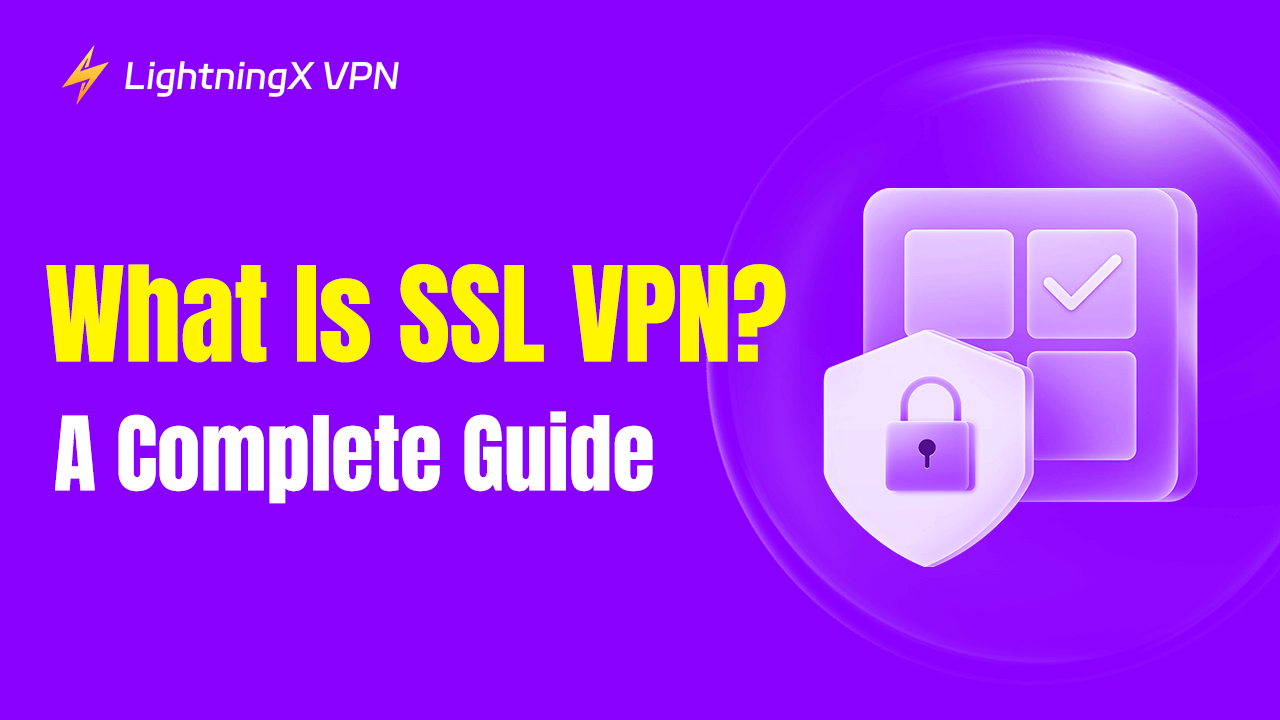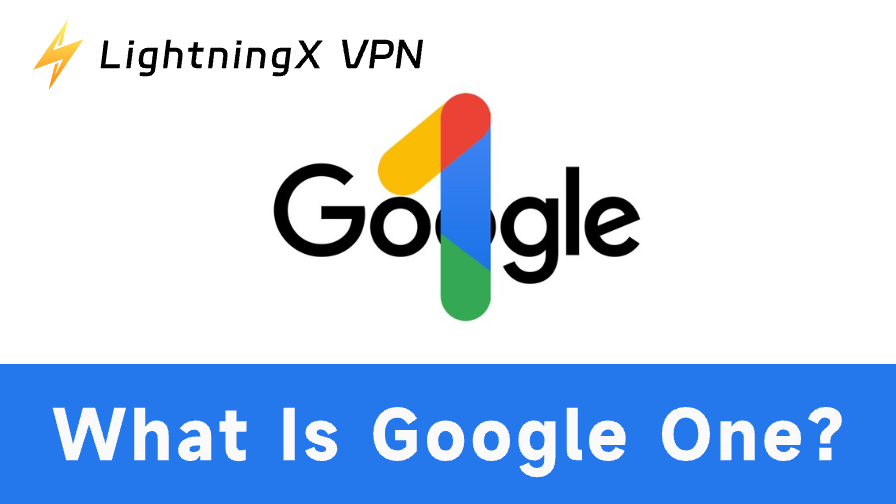If you’ve ever struggled with accessing your workplace files remotely or bypassing regional restrictions without the hassle of downloading heavy software, you’re not alone. For many, the solution lies in SSL VPNs – an increasingly popular way to securely connect to networks with minimal fuss.
This guide is all about SSL VPN, makes you understand it better, and helps you decide whether it’s time to make the switch.
What Is SSL VPN?
You can consider SSL VPN a combination of the Secure Sockets Layer (SSL) and the Virtual Private Network (VPN). SSL works to encrypt the data exchanged between your device and the internet, while a VPN establishes a secure connection between your device and a network, even on public or unsecured internet.
Together, SSL VPN provides secure remote access without the need for specialized software. Unlike traditional VPNs, it can often be accessed directly through a standard web browser, which saves a lot of energy and money, since it’s not software-standard or money-required.
SSL VPNs vs. Traditional VPNs
For people who care a lot about online security, traditional VPNs and SSL VPNs may sound familiar to you. They were both created to encrypt your online data and hide your digital footprint. However, they still have a different destination for the field they protect.
Traditional VPNs value privacy most, so they encrypt all your internet traffic by creating a secure VPN tunnel and routing it through a remote server. If you want to use it as a digital shield, you may come across it in software that operates at the system level, so that every app or service on your device is protected once connected.
SSL VPNs are a more focused solution. Focus on what? That’s the main difference from a normal VPN. Instead of securing all traffic, they rely on the SSL (or TLS) protocol to encrypt specific connections, often through a web browser.
Just go find a browser portal, and you can connect it quickly – a feature especially handy for diverse devices or remote access on the go. However, their capabilities are often limited to browser-based or specially configured applications, which may not suit everyone, especially those less experienced with computers.
Here’s where we have to mention the second big advantage of SSL VPNs-flexibility. Since they work directly through browsers, they’re compatible with nearly any device, from smartphones to laptops. However, traditional VPNs require an app (which seems less convenient), yet it offers broader coverage.
They secure almost all kinds of online activities – streaming, gaming, and app data included – and use powerful protocols like OpenVPN or IPSec for top-notch encryption, as a result, you can enjoy your online activity in an easier mood.
When it comes to performance, SSL VPNs have the advantage of speed. They only encrypt specific traffic, reducing the load on your connection, resulting a faster delivery results. Traditional VPNs, while leading in greater security overall, can sometimes slow things down due to their all-encompassing encryption.
We have made things very clear, and you probably have a general concept about these two distinctions. So, which one to choose depends on your specific needs. SSL VPNs are ideal for secure remote work, granting quick access to internal company resources. Traditional VPNs excel at bypassing geographic restrictions and censorship, making them the favorite for streaming and accessing blocked content.
How Do SSL VPN Websites Work?
If you want to use an SSL VPN, start by visiting the website, as it doesn’t rely on an app. Note that, SSL VPN websites aren’t one-size-fits-all – they vary depending on their purpose and provider. Here’s how they typically function:
Corporate or Organizational SSL VPN
When an SSL VPN is provided by a company or organization, users typically access it through a dedicated portal, such as vpn.company.com. This portal is designed to allow employees to securely connect to internal systems and resources. While everyone may use the same entry point, access levels are tailored based on the user’s department or role within the organization.
Commercial VPN Providers
For personal use, commercial VPN providers like LightningX VPN or NordVPN offer SSL VPN capabilities through a single platform, such as an app or web interface.
Tip: LightningX VPN raises high attention to its users’ security. With some robust encryption protocols such as Shadowsocks, Vless, and WireGuard, you can trust its level of protection for network security.

Like any good VPN, it allows you to easily bypass regional restrictions and access local content. With over 2,000 nodes across more than 50 countries, it has a strong global presence. For new customers who haven’t subscribed yet, it offers attractive benefits, such as a seven-day free trial and a 30-day unconditional money-back guarantee. Overall, if you’re in the market for a VPN, it’s definitely worth trying out. With the refund policy in place, you’ve got nothing to lose.
In a Nutshell
For work: Companies provide a specific portal where employees log in. Access levels depend on the user’s role or department.
For personal use: VPN providers offer an easy-to-use interface for selecting servers or features.
If your SSL VPN use is work-related, your IT team should provide you with the necessary login details and instructions. For personal use, refer to your VPN provider’s guide for setup and support.
Types of SSL VPNs
SSL VPNs come in two main forms, each catering to different needs:
Clientless SSL VPN
- How it works: As the name suggests, this type doesn’t require installing any software. You access it directly through a web browser.
- Best for: Occasional users or employees who need quick, easy access without the hassle of downloads or installations.
- Limitations: Functionality may be limited to specific applications or web-based services.
Client-Based SSL VPN
- How it works: This type involves installing a small application or client on your device. It provides more comprehensive access to the network.
- Best for: Regular users who need full access to network resources, such as remote workers or IT administrators.
- Limitations: Requires installation and setup, which might not be convenient enough for casual users.
Why Use an SSL VPN?
Though maybe harder to set up than a normal VPN, there are still many reasons to choose an SSL VPN:
- You can access an SSL VPN directly through a browser – no need to download extra apps or tools.
- Ideal for accessing private networks, whether it’s your workplace’s internal system or personal files stored on a server.
- SSL VPNs work on almost any device with a web browser, including laptops, smartphones, and tablets.
Conclusion
These days, detecting VPNs is not an uncommon occurrence, and breaking through their defenses is no longer a daunting task. That’s why exploring alternative solutions, like SSL VPNs, might be a more effective way to safeguard your online security. On top of that, SSL VPNs can also assist with remote work, these features sound pretty charming, right? However, your choice ultimately depends on your specific needs.


















